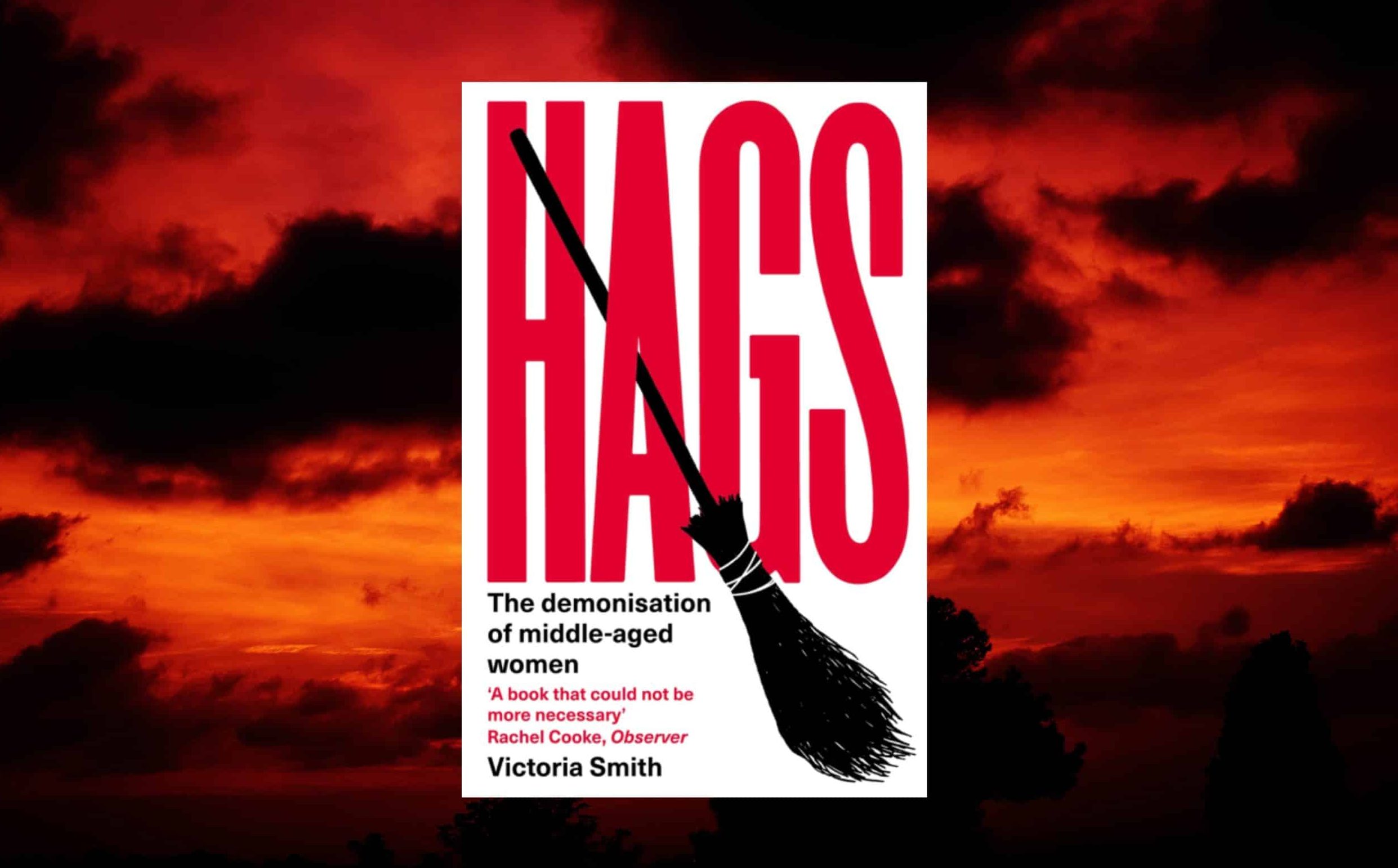 Kath Checkland is a GP and Professor of Health Policy and Primary Care at the University of Manchester. She is on Twitter: @khcheck
Kath Checkland is a GP and Professor of Health Policy and Primary Care at the University of Manchester. She is on Twitter: @khcheck
V ictoria Smith is angry. And like many angry women before her, she knows that her anger will be used to discredit and undermine her arguments: ‘There’s no way of responding to the situation which will not be read as sinister, entitled or insane’. The ‘situation’ she is addressing in her new book, Hags, is that of middle-aged women who are, she argues, ignored, belittled and denigrated by a youth-obsessed culture.
The central thesis of the book is that a persistently sexist and misogynistic culture values women according to the extent that they are perceived to be youthful and attractive. The invisibility that many post-menopausal women have highlighted is not, Smith argues, a welcome respite from the objectification experienced by young women. Rather, ‘you are still an object; you’ve just changed in status from a painting or a sculpture to a hat stand’. What is worse, the ‘hat stand’ has also, throughout history, been singled out as uniquely dangerous and even evil. Smith positions the current vilification of middle-aged women in popular culture as entitled ‘Karens’ and unprogressive dinosaurs in a direct line from the witch trials of the 16th Century. What is happening now, she argues, is just another manifestation of the age-old patriarchal need to keep older women in check. If this instinct were confined to men, it might be less of a problem, as feminist politics would provide a mechanism for a concerted resistance. However, Smith argues that the genius of the patriarchy is that it has managed to enlist younger women into the project too.
Smith argues that the genius of the patriarchy is that it has managed to enlist younger women into the project too.
Young women look at the older women in their lives and decide they don’t like what they see: women burdened with the lion’s share of caring work; women losing their looks and therefore their perceived worth; women who are under-valued at work and absent from board rooms. Blaming the previous generation of feminists – now all middle-aged hags – for failing to do feminism properly allows the young feminist to believe that her generation will overcome these failings and reach the promised land of equality and social justice. Smith’s sobering point is that that is exactly what the current hags thought when they were young.
Each of the chapters in the book addresses one of the myriad ways in which older women are denigrated in our culture, from our perceived ugliness to our prudishness and our privilege. Each chapter provides enraging examples of the phenomena being addressed, whilst subjecting them to an unashamed feminist analysis which is, to this reader at least, deeply refreshing. Smith’s feminism is that of the so-called ‘second wave’, a materialist analysis that identifies women as a sex-class whose oppression is inextricably linked to their female bodies and their role in reproduction. In this analysis, femininity is a mechanism of oppression, not a cause. This in itself is, in our current world, something approaching heresy, and Smith does not shy away from addressing controversies such as the vilification of J K Rowling and the harassment of Kathleen Stock. In her chapter ‘Beastly Hag’ she considers what it means to have a female body concluding that: ‘The longer you live in a female body, the harder it is to deny its impact on your position in the world’. From this observation she moves on to highlight the dangers to women of current attempts to downgrade the importance of biological sex, from the battle over census questions to the elimination of the word ‘woman’ from medical campaigns.
Each of the chapters in the book addresses one of the myriad ways in which older women are denigrated in our culture, from our perceived ugliness to our prudishness and our privilege.
These contemporary controversies serve as a lens through which to consider Smith’s arguments. It is undeniable that those – such as Rowling and Stock – arguing for the retention of biological sex as an important category, are often older women, who are routinely decried as being bigots ‘on the wrong side of history’. Smith examines this in each chapter, and her analysis boils down to this: is the current generation, set on eliminating biological sex as a meaningful category, uniquely enlightened, and once all the hags have died out we will thereby have eliminated prejudice? Or might the difference in perspectives between the generations represent differences in experiences between younger and older women? In research terms, Smith is pondering two different explanations for differences between groups. Are the differences a cohort effect – ie are older women just different, more prejudiced and less enlightened? Or is it a lifecycle effect, driven by the accumulation of experiences related to one’s femaleness over time? In the book, she comes down firmly in favour of the second explanation. Her evidence derives initially from her own experience. She describes her journey from being a young sex-positive third wave feminist in the 1990s, who believed that the older second wave feminists who argued that prostitution was exploitation were unenlightened prudes, to her current position as a middle-aged hag, angry about the way that society sexualises and oppresses young girls.
Hags will not please everyone – indeed, simply writing this review makes me fear that I too will be subject to the fate of many who have raised their voices in this debate.
Hags will not please everyone – indeed, simply writing this review makes me fear that I too will be subject to the fate of many who have raised their voices in this debate. However, I find Smith’s rage to be energising and I do not think that those of us who grew up before Smith during second wave feminism in the 1970s can sit this one out. To have the case for the importance of biological sex as an axis of oppression articulated so eloquently and clearly is liberating, and I hope that my younger colleagues will read it with an open mind.
Featured Book: Victoria Smith, Hags: The demonisation of middle-aged women, Hachette, 2023, ISBN 9780349726953, Hardback £20, https://www.hachette.co.uk/titles/victoria-smith/hags/9780349726953/
Featured photo by Chris Barbalis on Unsplash






